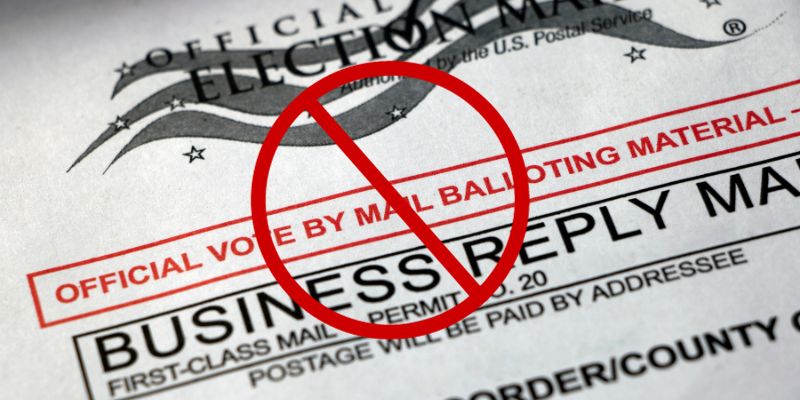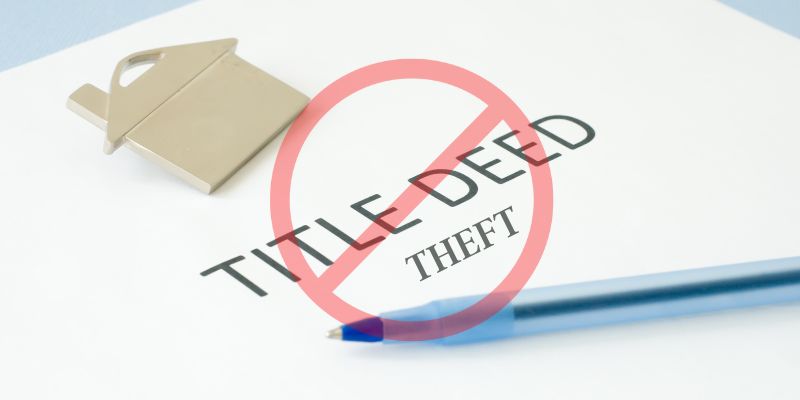
{Update} 2024 Proposed Senate Bill 1752 Raises Concerns of Potential Disenfranchisement for Florida Mail-In-Ballot Voters
Palm Coast Local
Government
(Update} January 19, 2024
Last Action: 1/11/2024 Senate - Introduced
---Read Original Article Below----
Florida Senator Blaise Ingoglia, R-Spring Hill, wants to make it personal for voters by introducing SB 1752, a bill that could significantly impact the ability to vote by mail. If this bill passes, voters will face new eligibility requirements, making it more challenging for them to request mail-in ballots.
Under SB 1752, voters in Florida would only qualify for a mail-in ballot if they are absent from their county of residence, facing personal inability to appear at an early voting site due to illness, physical disability, or responsibilities related to the primary care of someone in need. The bill further restricts eligibility to residents or patients of U.S. Department of Veterans Affairs medical facilities or incarcerated individuals who are still eligible to vote.
This move is part of a broader trend among Republicans to tighten regulations around vote-by-mail in Florida. Despite the method's popularity, with 44% of Floridians voting by mail in the 2020 general election and over 1.1 million mail-in ballots in the 2022 election, lawmakers are actively working to make the process more cumbersome.
In 2021, Republicans passed SB 90, imposing restrictions on drop boxes, requiring additional identification for mail-in voter registration, and increasing scrutiny on signatures. SB 1752 is the latest effort to heighten barriers to both obtaining and submitting mail-in ballots, raising concerns about the future of accessible and convenient voting in Florida. Stay informed about the potential impact of SB 1752 on early voting and more.
SB 1752 aims to impose restrictions on the approval of certain voting systems in Florida. The proposed changes to Florida Statutes would introduce a new subsection, outlining criteria that limit the state's options for voting systems. According to the bill, Florida would be prohibited from approving systems that:
- Utilize hardware or software developed, owned, or licensed by an entity majority-controlled by a foreign company, including domestic companies registered in another country or by non-U.S. citizens.
- Are manufactured, either wholly or partially (including software, hardware, tabulating equipment, printers, and accessories), in a foreign country.
- Employ non-open-source software that is not accessible for public inspection.
It's a move towards ensuring transparency and security in the state's voting processes, emphasizing the use of open-source software that allows public scrutiny and modification of the source code.
- SB 1752 introduces a significant provision in Section 3 of Section 101.592 within the Florida Statutes, mandating automatic manual counts in two randomly selected precincts per county. The Secretary of State will be responsible for the random selection, informing the county canvassing board at least 15 days before the election. However, the selected precincts will not be publicly disclosed until after the polls close on election day.
These manual counts must encompass a thorough tally of all election day votes for every race and ballot measure featured on the ballot in each of the two chosen precincts. The process is to be open to the public, with the county canvassing board providing notice of the date, time, and location in four prominent places within the county and on the supervisor of elections' website homepage.
Following the manual count, the county is required to compare the vote totals and report them to the Secretary of State by noon on the third day after any primary election and noon on the fifth day after any other election.
Should a substantial difference be identified that could impact the outcome of a race or ballot measure, the Secretary of State is obligated to order a countywide manual recount encompassing all election-day, vote-by-mail, early voting, provisional, and overseas ballots for that specific race or measure.
Any suspected irregularities or violations of election procedures in a county's voting systems will be referred to the Office of Election Crimes and Security for thorough investigation.
SB 1752 proposes stringent limitations on vote-by-mail ballot requests in Florida, introducing controversial measures that reshape the eligibility criteria. Currently, any registered Florida voter can request a mail-in ballot for multiple elections within a calendar year. However, under SB 1752, requesting a mail-in ballot would be restricted to a single election, accompanied by additional criteria defining who qualifies to make such requests.
To be eligible for a vote-by-mail ballot, voters must meet one of the following conditions:
- Absence from the county of residence
- Inability to appear personally at the early voting site or polling place due to illness, physical disability, or responsibilities related to the primary care of an ill or physically disabled individual, or due to hospitalization
- Residency or patient status at a U.S. Department of Affairs medical facility
- Absence from the legal residence due to confinement in jail, provided they remain qualified to vote in the precinct of their residence.
It's essential to note that these requirements do not apply to voters already entitled to vote by mail under the Uniformed and Overseas Citizens Absentee Voting Act.
SB 1752 does proposes a more restrictive framework for vote-by-mail in Florida thereby forcing eligible voters to go to the polls to vote.
The proposed bill, though lengthy in its content, boils down to a profound impact on all Florida voters. As we look into the intricacies, it becomes apparent that beyond addressing specific concerns, this bill carries a heavy weight, stripping away the cherished freedom of choice for Florida voters who prefer to vote by mail.
We will keep you updated on Senate Bill 1752. You can read the proposed bill as it stands here.
We want to know your thought on this proposed bill and how it effects you. Comment below or share and start a coversation.
{ampz:share-now}








